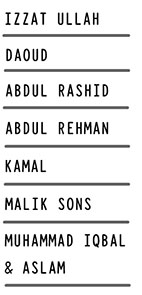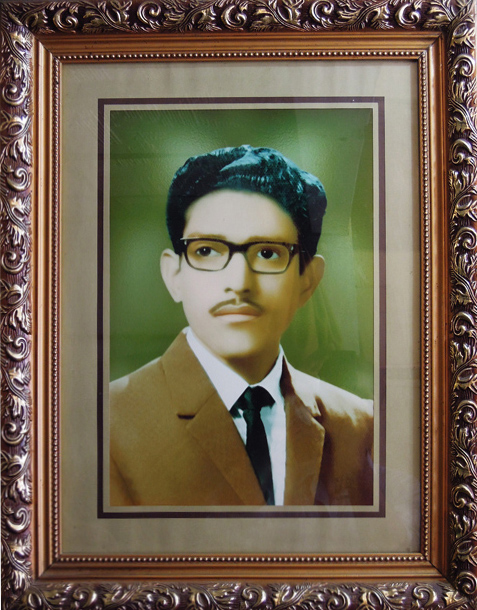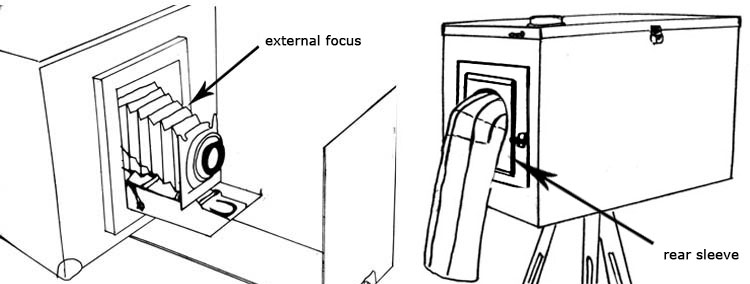|
|
ABDUL RASHID | |||
|
||||
"It’s called the minute camera," Abdul recalls - pronouncing 'minute' like 'mint' - "because it takes a picture in one minute." The advantage of the minute camera was that it was fast and cheap and he managed to make a living working on it. There were about eight or nine box camera photographers on the street where Abdul worked - all Pakistanis. The camera, he bought from Iqbal Photo Studio, which was also on Cinema Rd. Unlike the typical Afghan box camera, the box cameras used by the Pakistanis had a bellows for an external focusing system and the sleeve was as the back. The Afghan-style box camera only arrived in the 1980s with the refugees, he says. . After his spell on Cinema Rd. Abdul moved to the town of Mingora north of Peshawar where he opened the Mingora Art Studio using 120 and 220 film but by 1969 he had re-established himself back in Peshawar with the Peshawar Photo Company near Ghala Mandi. In 2009 Abdul underwent a heart bypass operation and closed that studio. Three of his four sons now work from the Jumbo Studio which they opened after Abdul’s operation. Occasionally Abdul takes photographs at the shop but leaves the computer work to his sons. The future of the business, he says, doesn’t look bright. The government institutions that require identification photographs now take the photos themselves, diminishing the business of small studios like his. Or as Abdul puts it: "Now is the downfall of photography in Pakistan."
|
||||
|
||||






